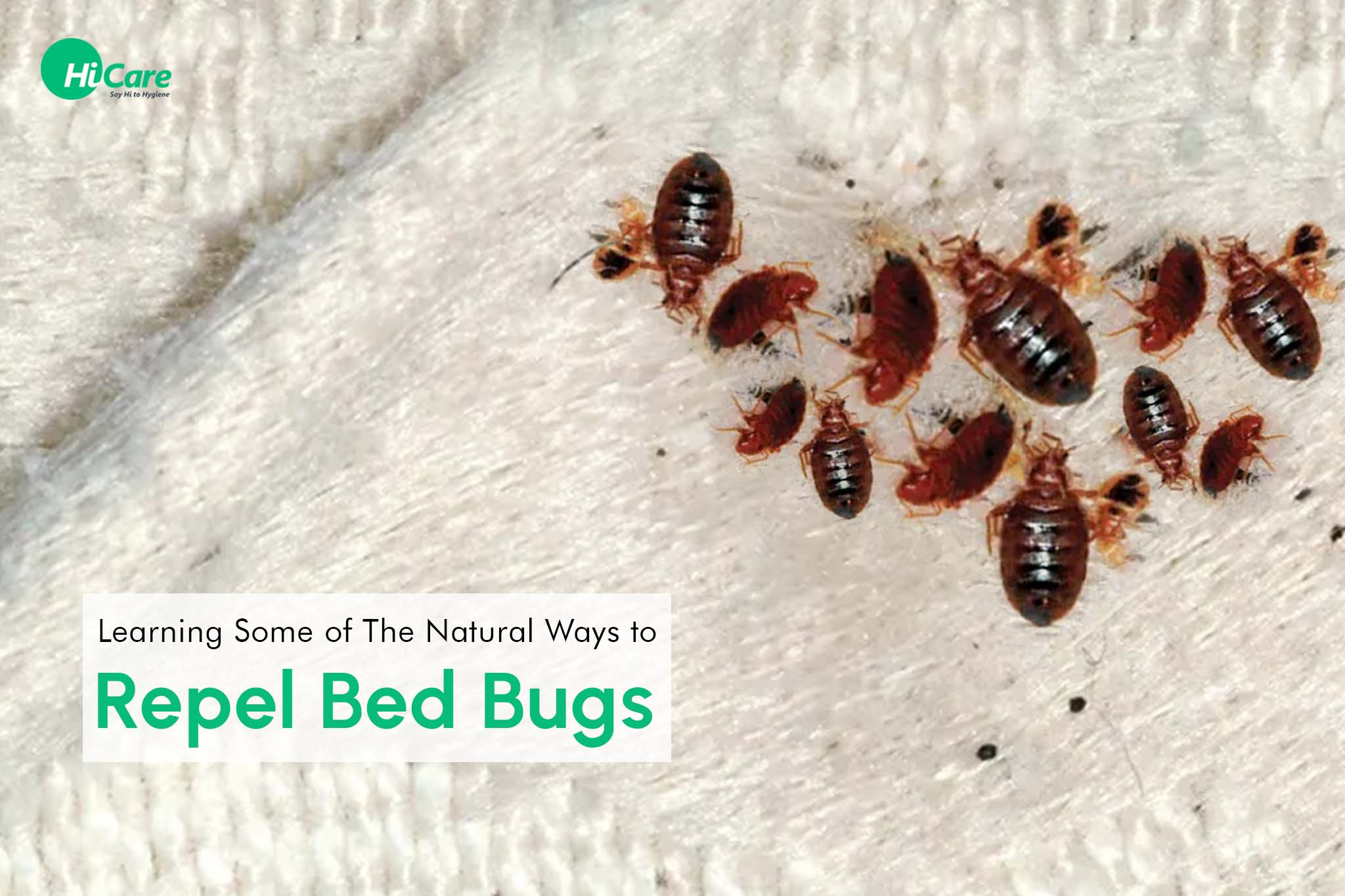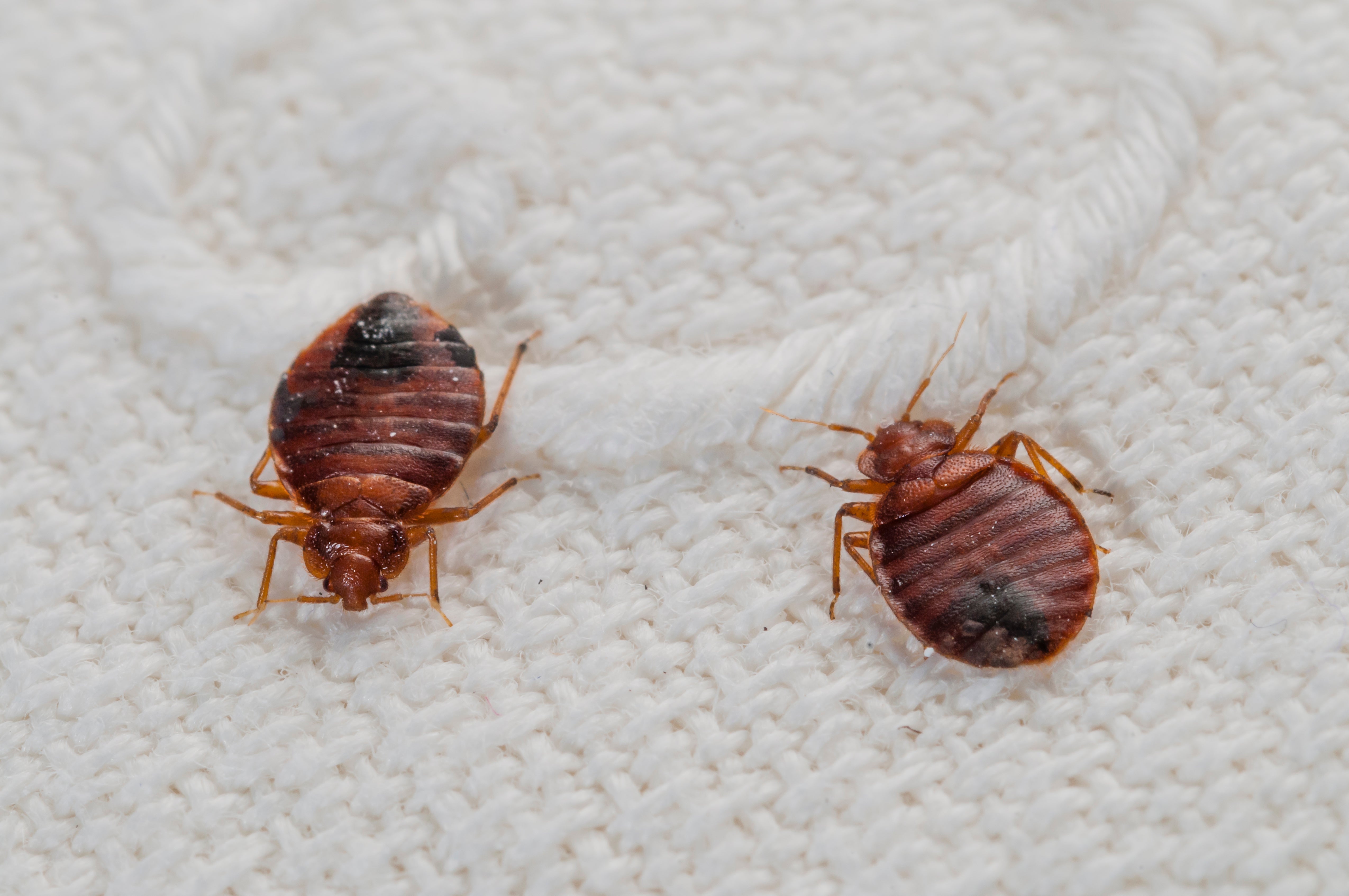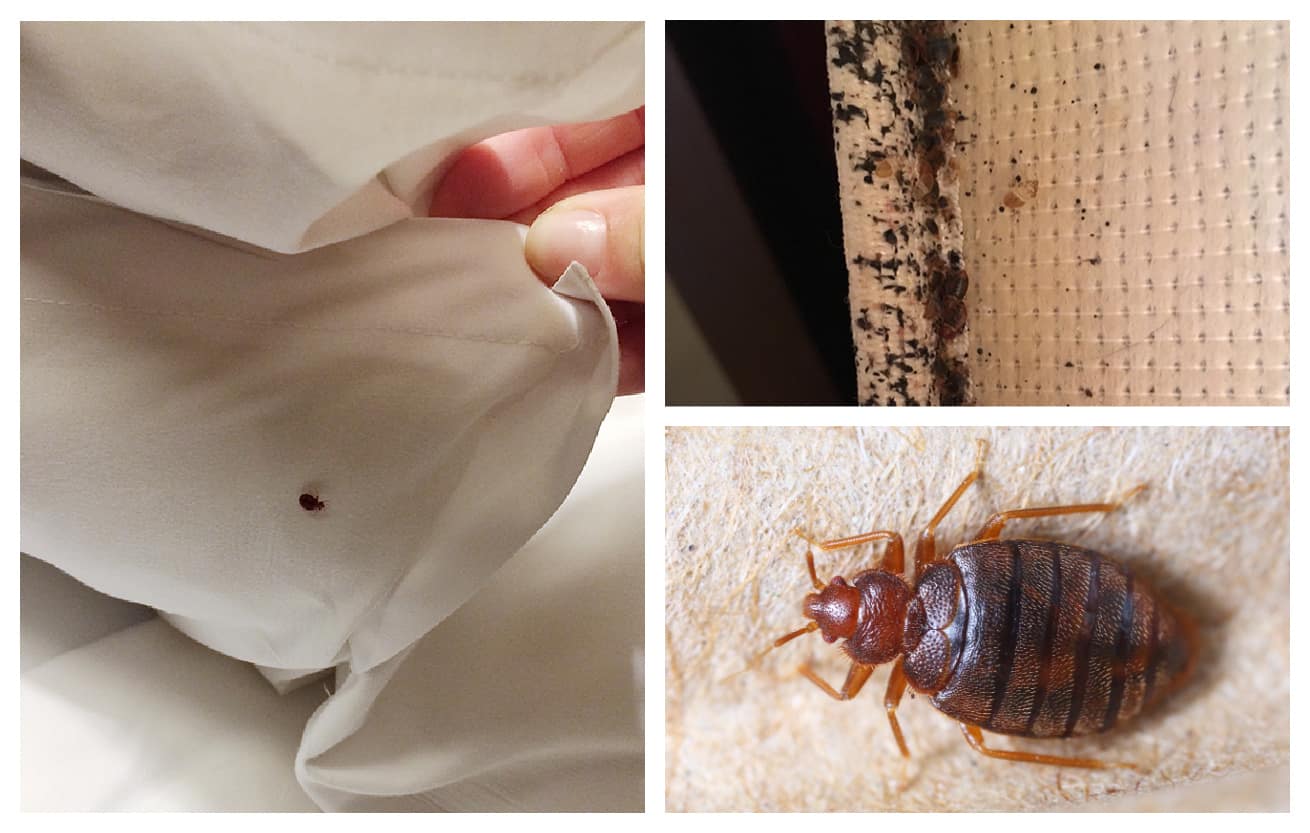To make bed bugs go away, start by thoroughly cleaning and decluttering the infested area. Next, use a vacuum cleaner to remove any visible bed bugs and their eggs from the mattress and surrounding areas.
To prevent their return, consider using a bed bug spray or contacting a professional pest control service for more severe infestations. Dealing with bed bugs can be a frustrating and stressful experience. These tiny pests can quickly multiply and infest your entire home, causing discomfort and potential health risks.
In this guide, we will discuss effective methods to make bed bugs go away and prevent future infestations. By following the steps outlined here, you can effectively eliminate bed bugs from your home and create a safe, comfortable environment for you and your family.

Credit: www.pinestatepest.com
Identifying Bed Bugs
Identifying bed bugs is crucial in order to effectively address an infestation. These pests are small, elusive, and adept at hiding in cracks and crevices. Understanding the physical appearance and common signs can help homeowners recognize a potential bed bug problem before it becomes a major issue.
Physical Appearance
Bed bugs are small, approximately the size of an apple seed, with a flat, oval-shaped body. They are reddish-brown in color, and their bodies may swell and turn a deeper red after a blood meal. Bed bug nymphs (young bed bugs) are smaller and lighter in color, making them harder to detect.
Common Signs
- Bite Marks: Waking up with red, itchy welts on the skin, often in a pattern of three bites, is a common sign of bed bugs.
- Blood Stains: Finding small bloodstains on bedding or mattresses from crushed bed bugs or bites is a key indicator of infestation.
- Dark Spots: Look for tiny dark spots along mattress seams, bed frames, and other areas where bed bugs may hide. These spots are fecal matter left behind by the insects.
- Foul Odor: A musty, sweet odor in infested rooms can signal the presence of bed bugs.
Prevention Methods
Preventing bed bugs is essential for maintaining a clean and comfortable living space. Here are some effective prevention methods that can help keep bed bugs at bay.
Regular Cleaning Practices
Regular cleaning is crucial in preventing bed bug infestations. Vacuuming and mopping floors, washing bedding and curtains in hot water, and regularly vacuuming upholstery can help eliminate bed bugs and their eggs. Additionally, using a protective mattress cover can prevent bed bugs from infesting the mattress.
Reducing Clutter
Reducing clutter in your living space significantly reduces the hiding places for bed bugs. Seal and dispose of items that are no longer in use, such as old newspapers, magazines, and cardboard boxes. Organize and declutter your living areas to minimize potential hiding spots for bed bugs.
Natural Remedies
Looking for natural remedies to get rid of bed bugs? Discover effective methods to make these pesky pests go away without harmful chemicals or toxins.
Heat Treatment
When using heat treatment, exposing infested items to high temperatures can effectively kill bed bugs.
Diatomaceous Earth
Diatomaceous Earth (DE) is a natural powder that dehydrates and kills bed bugs upon contact.

Credit: hicare.in
Professional Extermination
In some cases, professional extermination may be the most effective way to eliminate bed bugs from your home. Hiring experienced exterminators who specialize in tackling bed bug infestations can provide you with a comprehensive solution. They have the knowledge, tools, and expertise to effectively detect, treat, and eradicate these stubborn pests.
Hiring Exterminators
When seeking professional extermination services, it’s crucial to choose knowledgeable and reputable exterminators. Here are a few important considerations:
- Research and read reviews from other customers to ensure the exterminators have a good track record.
- Ask about their experience specifically with bed bug extermination. You want someone who has dealt with these pests before.
- Check if they offer a warranty or guarantee on their services. This demonstrates their confidence in their ability to rid your home of bed bugs.
- Inquire about their methods and techniques. Updated and modern approaches are usually more effective than outdated ones.
By hiring professional bed bug exterminators, you can save time, money, and frustration.
Chemical Treatments
Chemical treatments applied by professionals are often highly effective in eliminating bed bugs. These treatments involve the use of powerful insecticides that target bed bugs at various lifecycle stages, including eggs, nymphs, and adults.
Professional exterminators know how to apply these chemicals in a safe and controlled manner to minimize health risks to humans and pets. They will carefully evaluate the infestation level and use the appropriate amount of insecticide to ensure thorough coverage without unnecessary exposure.
Chemical treatments work by disrupting the bed bugs’ nervous system, leading to paralysis and death. However, it’s important to note that some bed bug populations have developed resistance to certain chemicals. Professional exterminators are well-informed about the most effective products and can select the appropriate treatments based on the specific situation.
Remember: Chemical treatments should only be carried out by professionals who have the necessary training and expertise to ensure the safety of you and your home.
Laundry And Bedding Care
Proper laundry and bedding care is essential in your battle against bed bugs. Taking these preventive measures not only helps to eliminate existing bed bugs but also prevents new infestations. In this section, we will explore two effective methods for dealing with bed bugs in your laundry and bedding – washing at high temperatures and using mattress encasements.
Washing At High Temperatures
One of the most effective ways to kill bed bugs, their eggs, and larvae is by washing infested bedding and clothing at high temperatures. Bed bugs cannot survive extreme temperatures, so a hot wash cycle can eliminate them and prevent their spread.
Here’s how you can wash your bedding and clothing at high temperatures:
- Set your washing machine to the hottest temperature allowed for the fabric.
- Add your infested bedding, pillows, mattress covers, and any washable clothing.
- Use a quality laundry detergent and add it according to the manufacturer’s instructions.
- Allow the washing machine to complete the full wash and rinse cycle.
- Dry the items thoroughly in a hot dryer, ensuring the heat penetrates all areas.
By following these steps, you can effectively eliminate bed bugs and prevent their reinfestation through your laundry. Remember to seal the infested items in a plastic bag before transporting them to the laundry room to avoid further spreading the bugs.
Using Mattress Encasements
Mattress encasements are protective covers that surround your mattress, preventing bed bugs from infesting it and making it easier to detect and eliminate them.
Here’s why you should consider using mattress encasements:
- Prevent Infestation: Mattress encasements create a barrier that prevents bed bugs from reaching and infesting your mattress.
- Early Detection: Encasements are designed to be bed bug-proof, making it easier to spot any bed bugs or their droppings, alerting you to a potential infestation.
- Ease of Inspection: With a mattress encasement, you can easily inspect and treat any bed bugs found on the surface before they have a chance to spread.
- Better Sleep: Encasements also protect your mattress from stains, spills, and allergens, promoting a healthier and more comfortable sleep environment.
When selecting a mattress encasement, ensure it is specifically designed for bed bug protection and labeled as “bed bug-proof.” It should fully encase the mattress, have a secure zipper closure, and strong seams to prevent bed bugs from escaping or entering.

Credit: www.scientificamerican.com
Dealing With Infestations
Deep Cleaning Practices:
Make sure to thoroughly clean all areas where bed bugs may hide, including cracks and crevices.
Isolating Infested Items:
Isolate infested items in sealed plastic bags to prevent bed bugs from spreading.
Monitoring And Inspection
When it comes to dealing with bed bugs, monitoring and inspection play a crucial role. Regular checking of mattresses and the use of interceptors are effective methods for keeping bed bugs at bay. By diligently monitoring and inspecting your living spaces, you can detect and eliminate these pests before they become a larger problem.
Regular Checking Of Mattresses
Inspecting your mattress and box spring regularly is essential for preventing and controlling bed bug infestations. Regularly checking for signs of bed bugs, such as small bloodstains, exoskeletons, and dark fecal spots, can help you identify a bed bug problem in its early stages. Pay close attention to the seams, tufts, and folds of the mattress, as these are common hiding spots for bed bugs.
Use Of Interceptors
By placing interceptors under the legs of your bed frame, you can effectively monitor and trap bed bugs as they try to climb onto your bed. These simple devices are designed to prevent bed bugs from reaching you while you sleep and help to monitor the presence of bed bugs in your home. Regularly inspecting the interceptors for bed bug activity can provide valuable insight into the extent of the infestation and inform your pest control efforts.
Seeking Professional Help
Consulting Pest Control Experts
When tackling a bed bug infestation, it’s crucial to consult with professional pest control experts. Pest control professionals have the ability to accurately identify and effectively eradicate bed bugs from your home. Their expertise and specialized knowledge can provide valuable insights into the severity of the infestation and the best course of action to take.
Understanding Treatment Options
Professional pest control experts can offer a range of treatment options to deal with bed bug infestations. These options may include chemical treatments, heat treatments, or integrated pest management. Each treatment has its advantages, and a professional can help you understand the pros and cons of each, as well as which option is best suited to your specific situation. By seeking professional guidance, you can make an informed decision on the most effective treatment method for your home.
Frequently Asked Questions Of How To Make Bed Bugs Go Away
How Do I Know If I Have Bed Bugs?
To determine if you have bed bugs, look for small brownish-red or rust-colored stains on your sheets and mattresses. You may also notice itchy red welts on your skin in the morning. Another sign is the presence of tiny dark spots or shed skins on your mattress or furniture.
What Are The Signs Of A Bed Bug Infestation?
Signs of a bed bug infestation include a musty odor in your bedroom, small blood stains on your sheets or pillows, and dark spots on your bedding or furniture. You may also see bed bugs themselves, which are about the size of an apple seed and are reddish-brown in color.
How Can I Prevent Bed Bugs From Infesting My Home?
To prevent bed bugs, regularly inspect your bedding, furniture, and luggage for signs of infestation, especially after traveling. Use mattress and box spring covers to create a barrier against bed bugs. Avoid buying used furniture and wash your bedding regularly in hot water.
Conclusion
Tackling bed bugs requires diligence and consistency. By combining thorough cleaning, vacuuming, and professional pest control services, you can effectively eliminate these pesky pests. Remember to monitor your surroundings regularly to prevent future infestations. With the right approach, you can bid farewell to bed bugs for good.
Related posts:

I’m MD Tanvir, and I bring years of expertise gained from working closely with pest control companies to the forefront. My journey in the industry has inspired me to launch Bug Battler, a platform aimed at equipping people with the know-how to combat pests autonomously. Through Bug Battler, I aim to empower individuals with practical insights to tackle pest infestations effectively.

